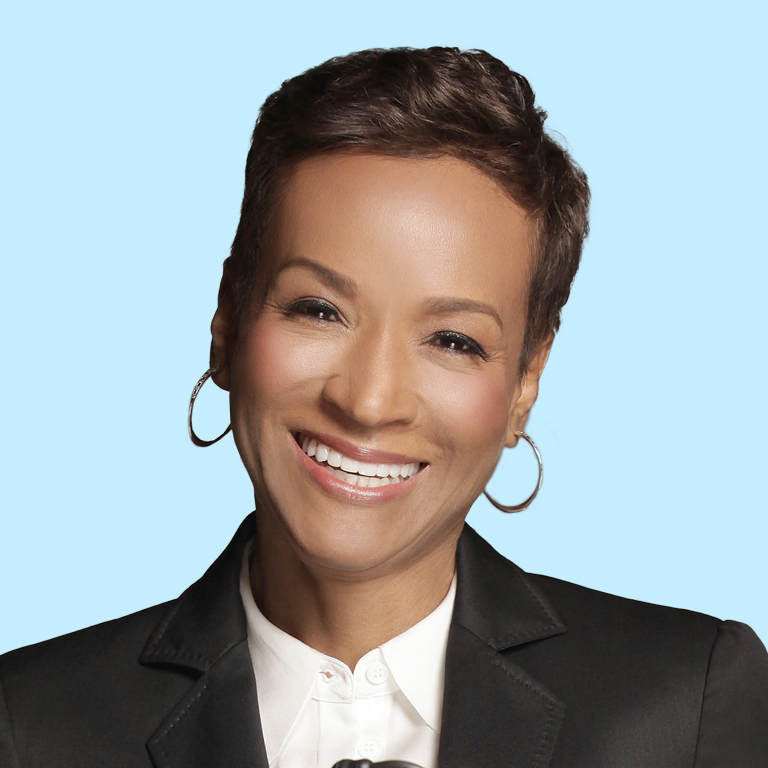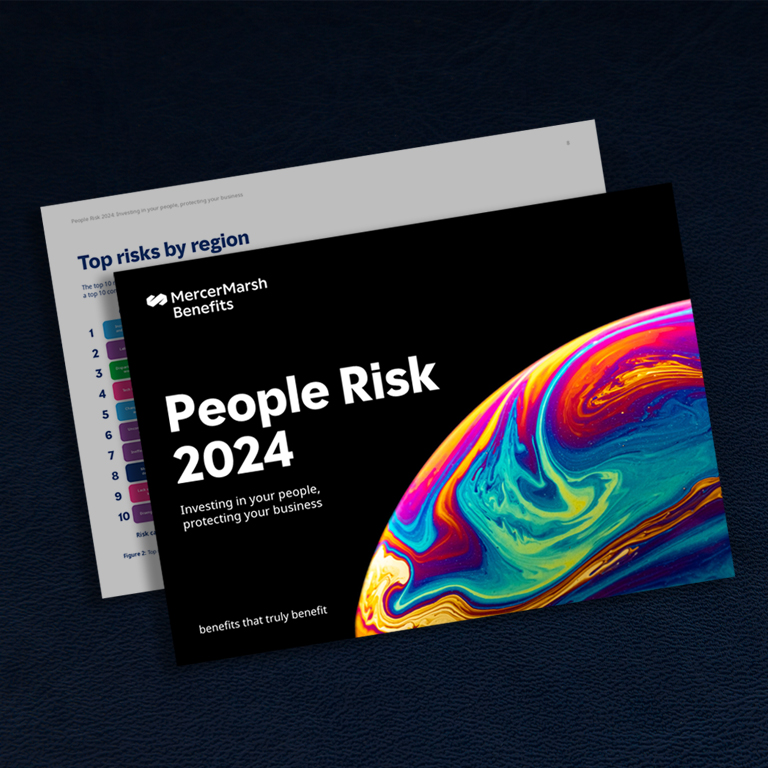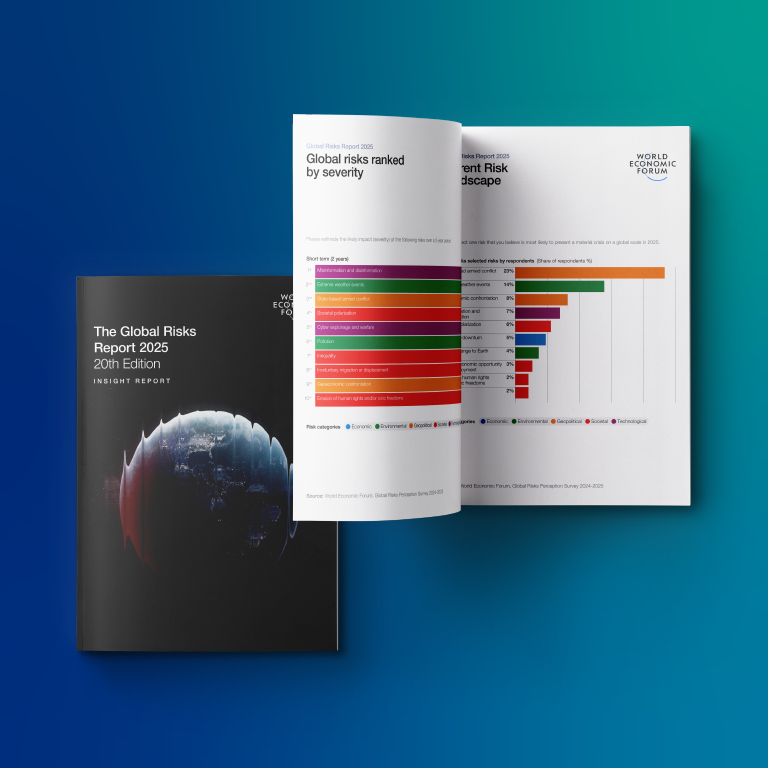In 2024, almost half of the world’s population will go or have already gone to the polls, spanning elections in 64 countries. With political polarisation on the rise, political discourse in the workplace can lead to stress and uncivil behaviour. For example, during the last US presidential election 62% of workers reported politics affecting their ability to work and 50% avoided working with or talking to a co-worker because of their political beliefs.
Risks and expectations of a new work environment
Misinformation and societal polarisation were cited as top short-term risks in the World Economic Forum’s 2024 Global Risks Report. Veracity and tone of information are both susceptible to manipulation and provocation. Since the COVID-19 pandemic, employers have been seen as trusted sources of information, with employees often scoring their employers higher than government entities. Businesses score higher than governments on ethics and competence according to the 2024 Edelman trust survey. As the risk and frequency of misinformation rises, organisations will need to keep pace, protecting both their brands and their people.
Yet where and how we work is rapidly transforming. From hybrid and remote arrangements to the influx of assistive technology and generative AI, both organisations and employees are constantly adapting.
Employees’ expectations have evolved — they are looking not only for financial stability, but also psychological safety, digital enablement, and skill growth. Many employers in turn responded to these expectations — and a tight labour market — by providing more competitive wages, more robust health benefits, and more flexible working arrangements. Increasingly, employers have also tried to position the office as an inclusive social space and encourage employees to be their ‘authentic selves’. But as a primary space in people’s lives to socialise and interact with others, the office has the potential to absorb the political tensions and polarisation increasingly prevalent in broader society.
Employers would be wise to continue monitoring political discourse in the workspace and to evaluate how best to promote healthy social interactions and civic duty – keeping in mind that, when political discourse occurs in the office, it can trigger workplace incivility or even transgressions like intimidation and harassment. Incivility can in turn increase employees’ incidence of depression, anxiety, stress, and emotional exhaustion. This can create a negative feedback loop: employees who report being unwell are less likely to feel like they can be their authentic selves at work.
Incivility has impact
Incivility has implications for business outcomes as well, including decreased job performance, lower productivity, work withdrawal behaviours, and turnover intentions. Employees who believe their workplace is uncivil are more likely to say they are dissatisfied with their jobs and are two times more likely to indicate they will leave their jobs within a year.
Incivility and organised misinformation campaigns target and impact certain populations more than others. People who identify as LGBTQIA+, adults with disabilities, and people of colour cite the political climate as a stronger source of stress in their lives compared to other groups.
So how can organisations balance employees’ need to socialise and express their views, while putting guardrails or safeguards in place for speech and conduct at work? How do we create safe and productive workplace environments for civic discourse during a time of global polycrisis? How can we respect differences and protect the vulnerable? While the workplace reflects larger social contexts, it is also regulated by a different set of guidelines, including a duty of care for employees and brand stewardship for investors.
We propose a framework for employers to consider as they review their policies and protocols. The continuum spans from advocacy of social discourse to an awareness of the consequences of incivility. Do work teams have ample diversity of thought and adequate psychological safety required to create and produce at their best? Are cliques formed among co-workers that lead to exclusion, intimidation, or harassment? And are managers equipped with the tools and resources to identify risks and suitably respond?









